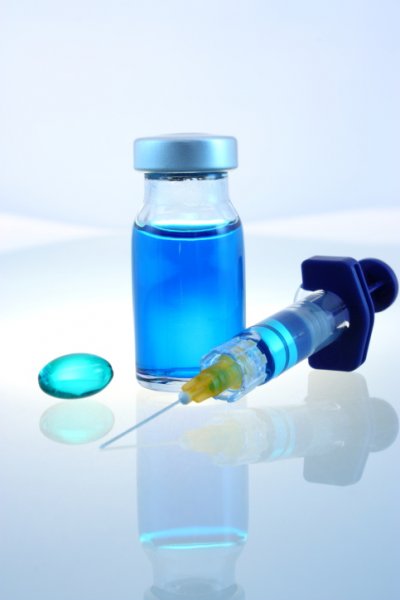Muscle Talk

Jaime Filer graduated with a kinesiology degree from York University, where she was a varsity athlete. She’s also a former competitive bodybuilder who competed in drug-tested events throughout North America. If something new is trending in fitness, chances are Jaime’s already tried it!

Fish Oil 101
Fish oil is another name for the polyunsaturated omega-3 fats found in cold-water fatty fish such as salmon. Omega-3s are known as “essential fatty acids” (EFAs); they’re “essential” because the body needs them but cannot make them itself in adequate quantities. Therefore, omega-3s must come from an outside source, preferably your diet.
The EFAs found in fish oil are eicosapentaenoic acid (EPA) and docosahexaenoic acid (DHA). The third omega-3 in the group is alpha-linolenic acid (ALA), but the human body can only utilize DHA and EPA. It cannot use ALA, so it has to be converted by the body into DHA and EPA for it to be of any benefit.
One way omega-3s work, according to studies, is by encouraging the production of the body chemicals that help control inflammation in joints, the bloodstream, and the tissues. A plethora of studies show that omega-3 fatty acids have myriad other health benefits, too. But it’s their anti-inflammatory and heart-healthy properties that make them valuable to bodybuilders. They help prevent joint pain, aid in weight loss, and even help ease the pain caused by inflammation after weight training.
Q. What are the major difference between prescription and over-the-counter fish oil supplements?
 A. One major difference is the type or quality of EPA/DHA present in the supplement. Pharmaceutical companies developed and patented a purification process for the fish oils, which housed EPA and DHA as ethyl esters (the glycerol backbone of a triglyceride is removed and substituted with ethanol) instead of triglycerides (three fatty acids [i.e., EPA and DHA] bonded to a glycerol backbone). The process of making the triglyceride into an ethyl ester is referred to as “molecular distillation” in the fish oil industry.
A. One major difference is the type or quality of EPA/DHA present in the supplement. Pharmaceutical companies developed and patented a purification process for the fish oils, which housed EPA and DHA as ethyl esters (the glycerol backbone of a triglyceride is removed and substituted with ethanol) instead of triglycerides (three fatty acids [i.e., EPA and DHA] bonded to a glycerol backbone). The process of making the triglyceride into an ethyl ester is referred to as “molecular distillation” in the fish oil industry.
This allows for the selective concentration of the EPA and DHA fatty acids, which results in higher levels than those found naturally in fish. The resulting EPA and DHA concentrate is then marketed and sold as “fish oil concentrate.”
Another difference is the amount or quantity of EPA/DHA present in the supplement. Pharmaceutical companies devised a way to make a fish oil supplement that was around 80 percent EPA/DHA compared to the 30 percent EPA/DHA that you’d find in a cheaper brand at a supplement store. The prescription brand contains 375 milligrams of DHA and 465 milligrams of EPA per one-gram capsule. The generic fish oil supplements vary from similar content to insignificant amounts. The majority of the rest of the
capsule would include other fats and cholesterols. By way of comparison to the supplement, to get approximately one gram of EPA and DHA in a meal, you’d have to consume 12 ounces of canned light tuna, 2 to 3 ounces of sardines, 1.5 to 2.5 ounces of farmed Atlantic salmon, or 20 ounces of farmed catfish.
Q. Is there a difference in the efficacy of prescription fish oil and its over-the-counter counterpart?
 A. There is a difference in the efficacy of the two types, but how different the efficacy is and whether this amount is significant are two different issues. Some studies have found the bioavailability of the omega-3 ethyl esters was 27 percent worse compared to the control fish oil, which was pretty much equivalent to squeezing the EPA and DHA out of a fish. That 27 percent difference isn’t really
A. There is a difference in the efficacy of the two types, but how different the efficacy is and whether this amount is significant are two different issues. Some studies have found the bioavailability of the omega-3 ethyl esters was 27 percent worse compared to the control fish oil, which was pretty much equivalent to squeezing the EPA and DHA out of a fish. That 27 percent difference isn’t really
scientifically statistically significant though. However, throughout different tests measuring the amount of EPA and DHA in red blood cell membranes, omega-3 ethyl esters were consistently worse performers.
This is the best way to measure omega-3s in the body, because when EPA and DHA are in your red blood cell membranes they’re at their prime, waiting to be used by the right enzyme and put to use. The researcher established that those receiving the high-quality triglyceride fish oil supplement (as opposed to the prescription) had a much higher omega-3 index. Thus, current findings don’t support omega-3 ethyl esters as being superior to regular fish oil supplements.
Q. Is prescription fish oil better than OTC fish oil?
 A. Nope. Just because something costs more or is prescribed by a doctor, that doesn’t mean it’s better than something that’s been backed by tons of scientific research in general. Just because there’s a doctor’s seal of approval on it and it’s made available by Big Pharma, that doesn’t mean it’s better than something you can buy at a pharmacy or at your local GNC. Do you research and trust the facts, not the fancy labels.
A. Nope. Just because something costs more or is prescribed by a doctor, that doesn’t mean it’s better than something that’s been backed by tons of scientific research in general. Just because there’s a doctor’s seal of approval on it and it’s made available by Big Pharma, that doesn’t mean it’s better than something you can buy at a pharmacy or at your local GNC. Do you research and trust the facts, not the fancy labels.

